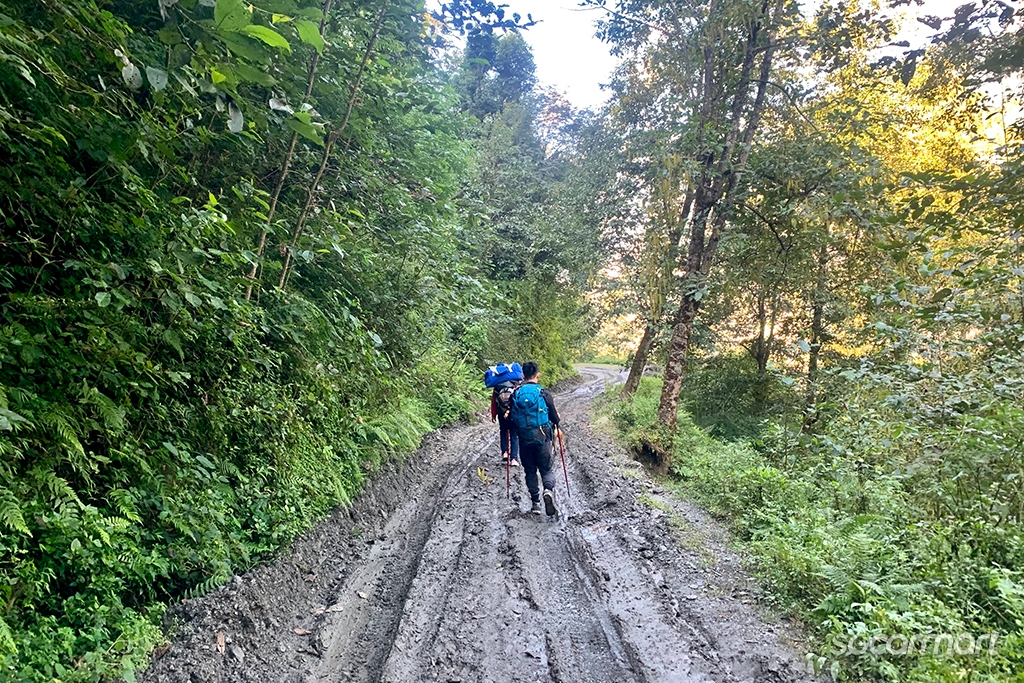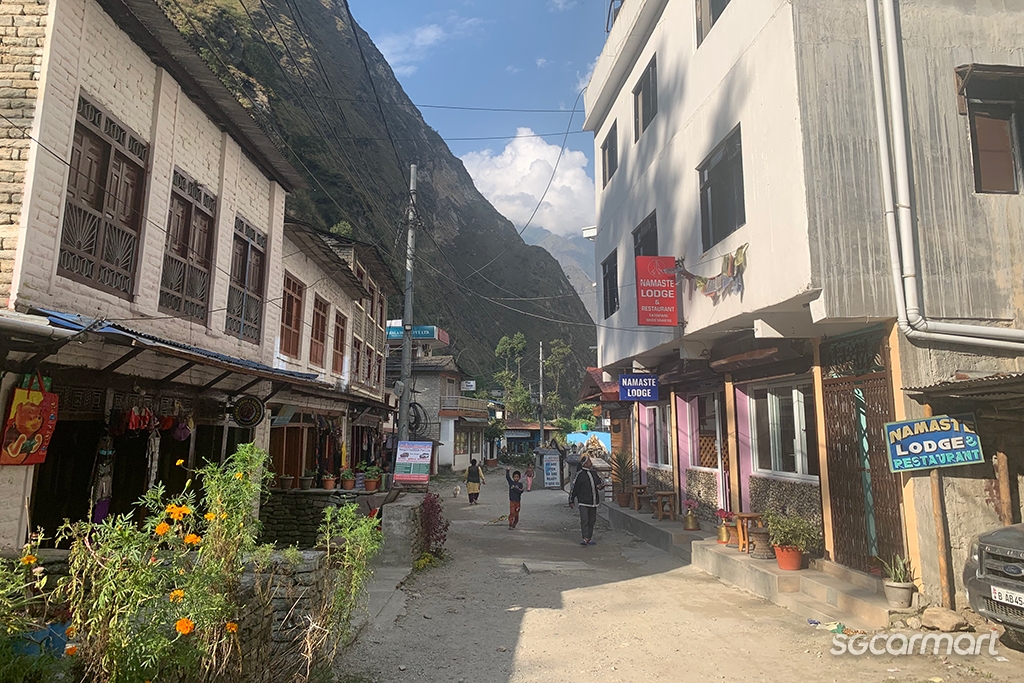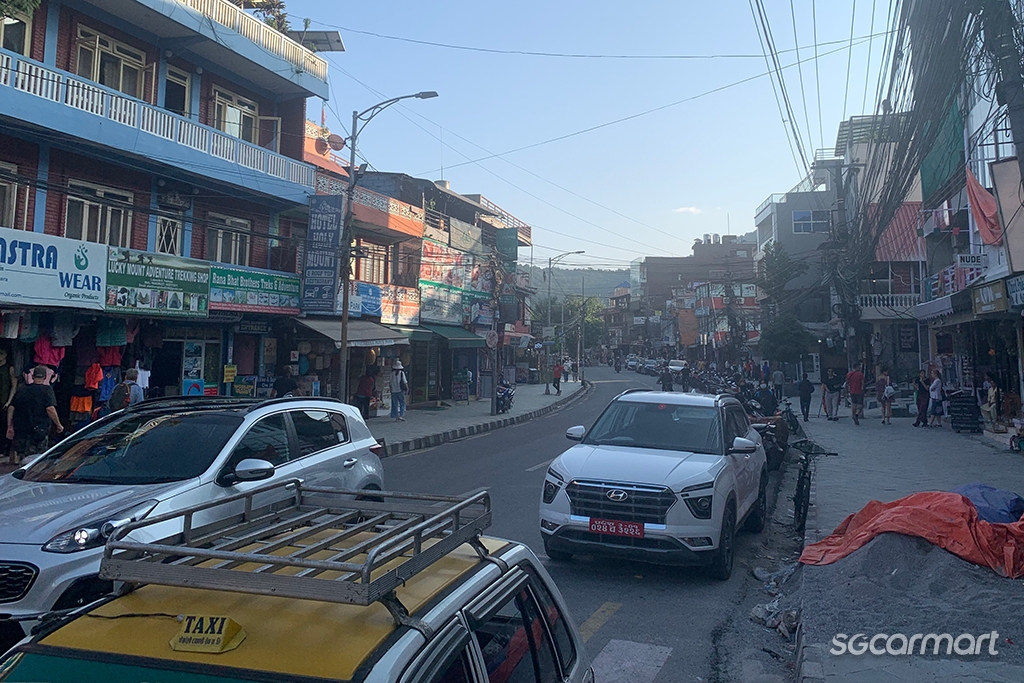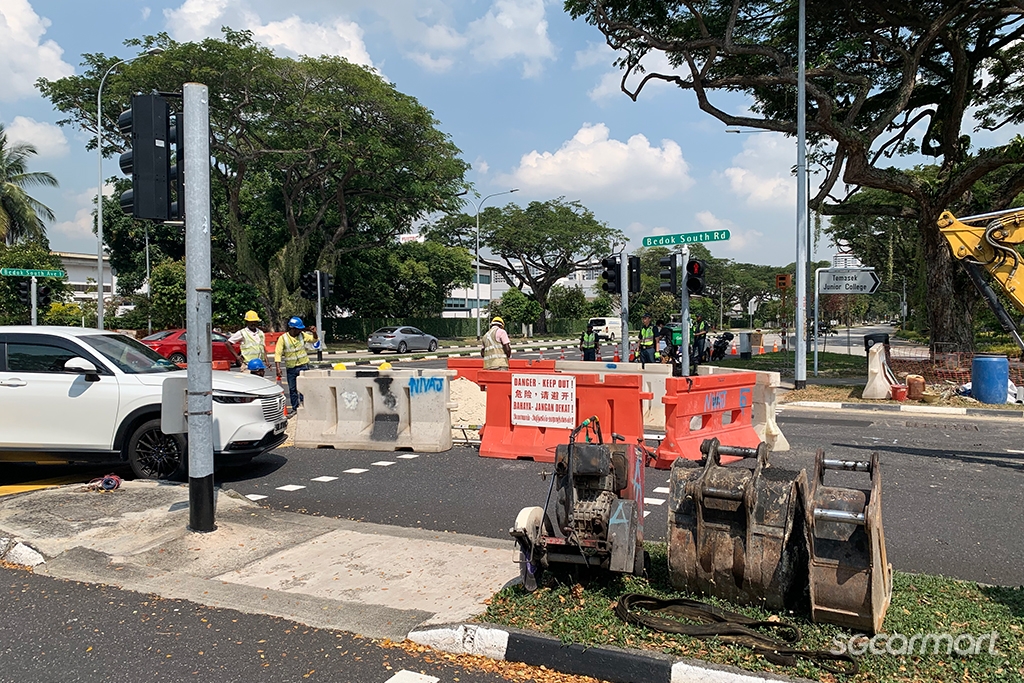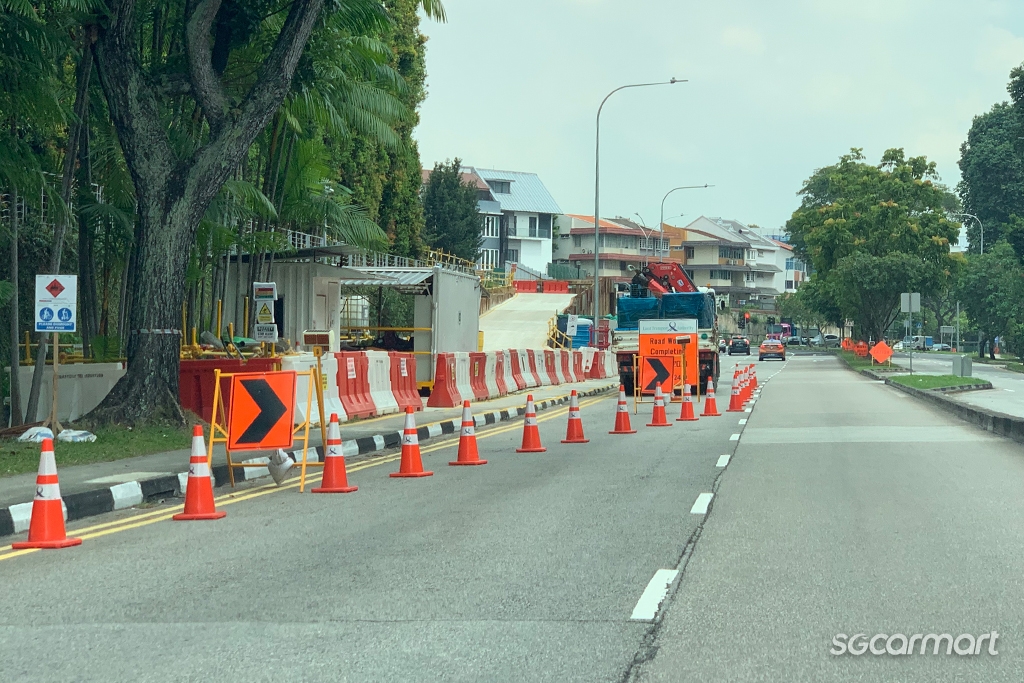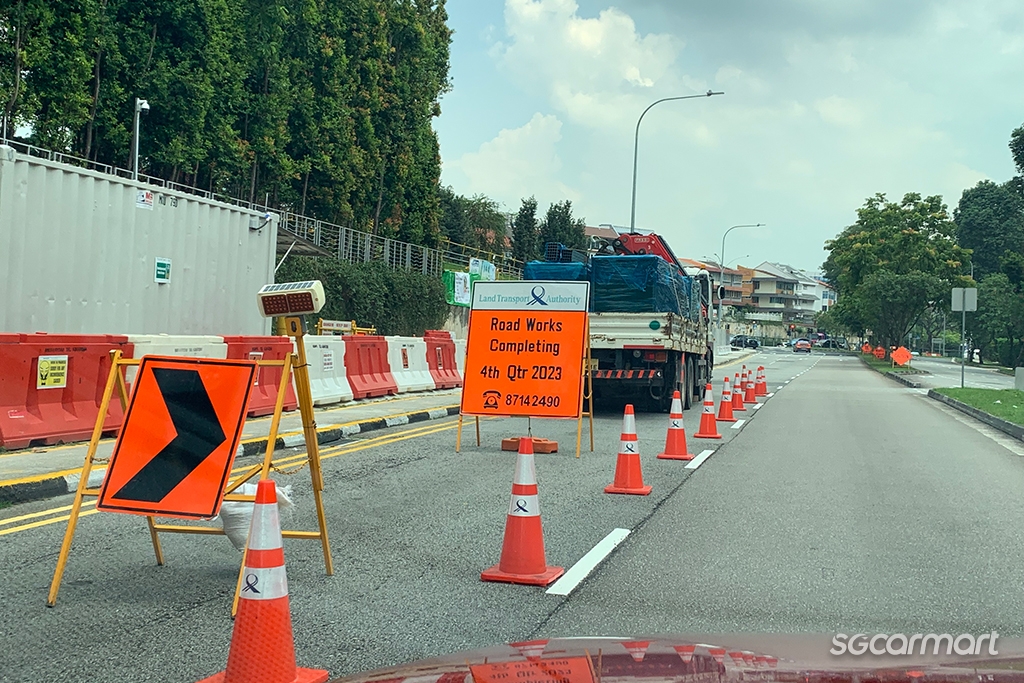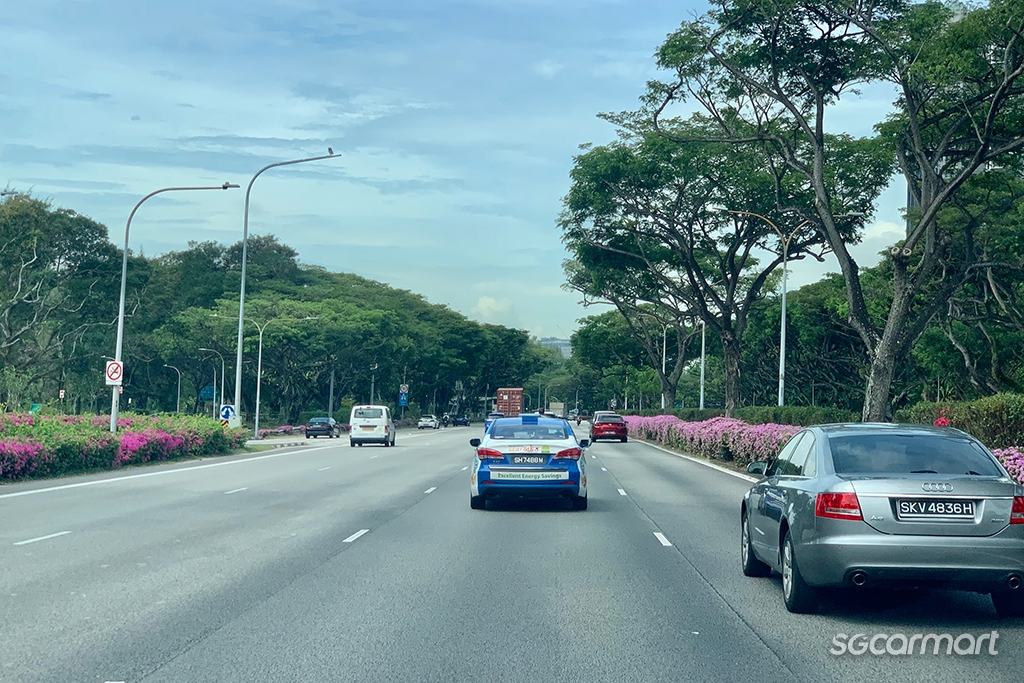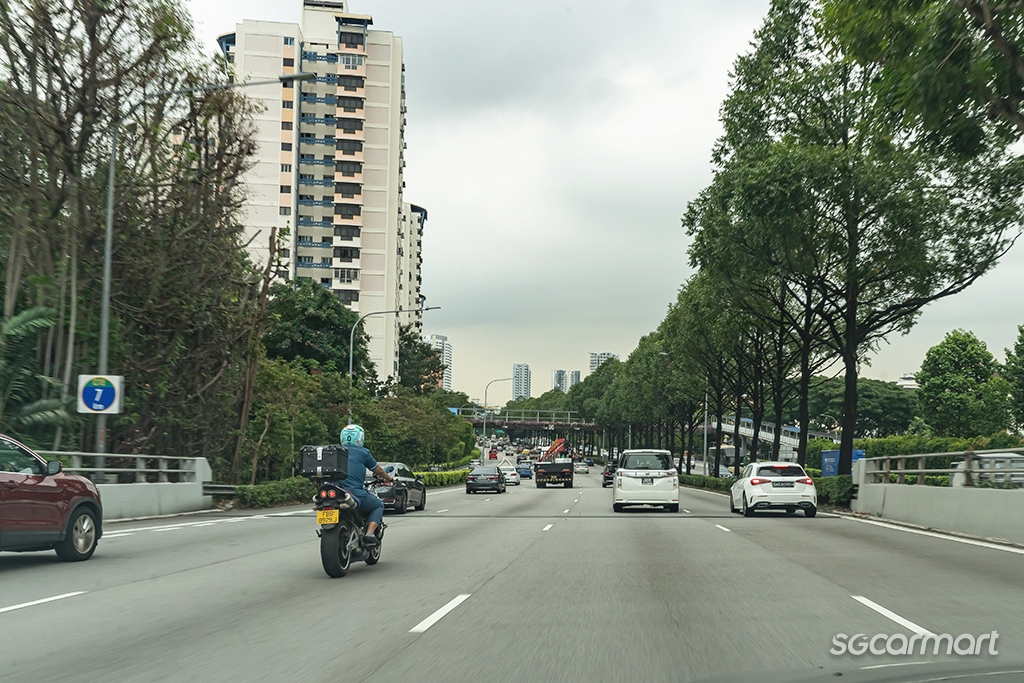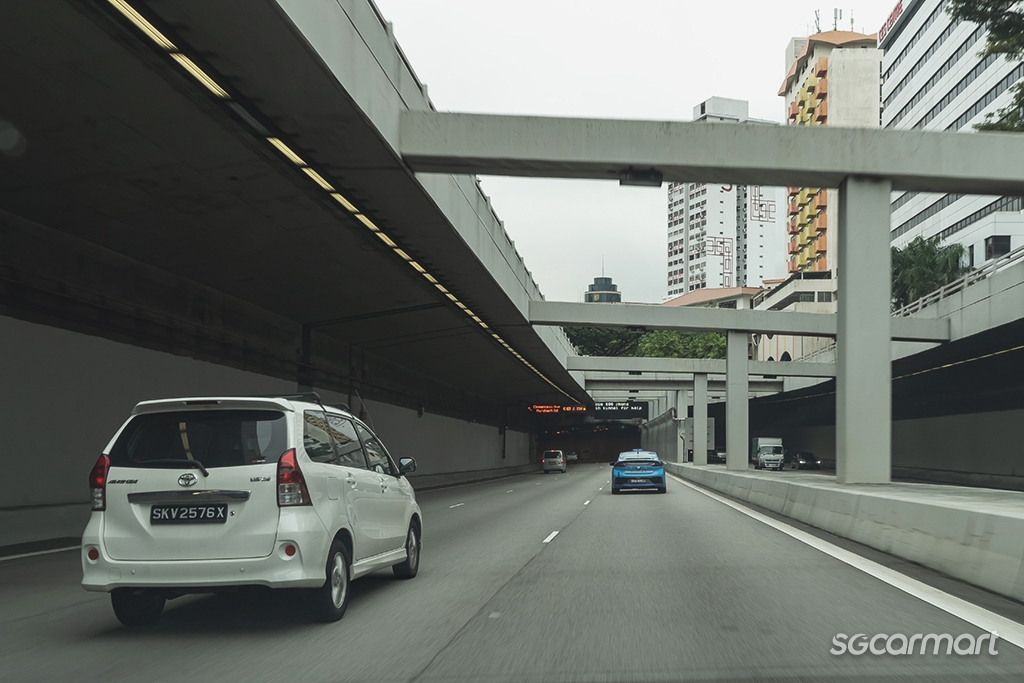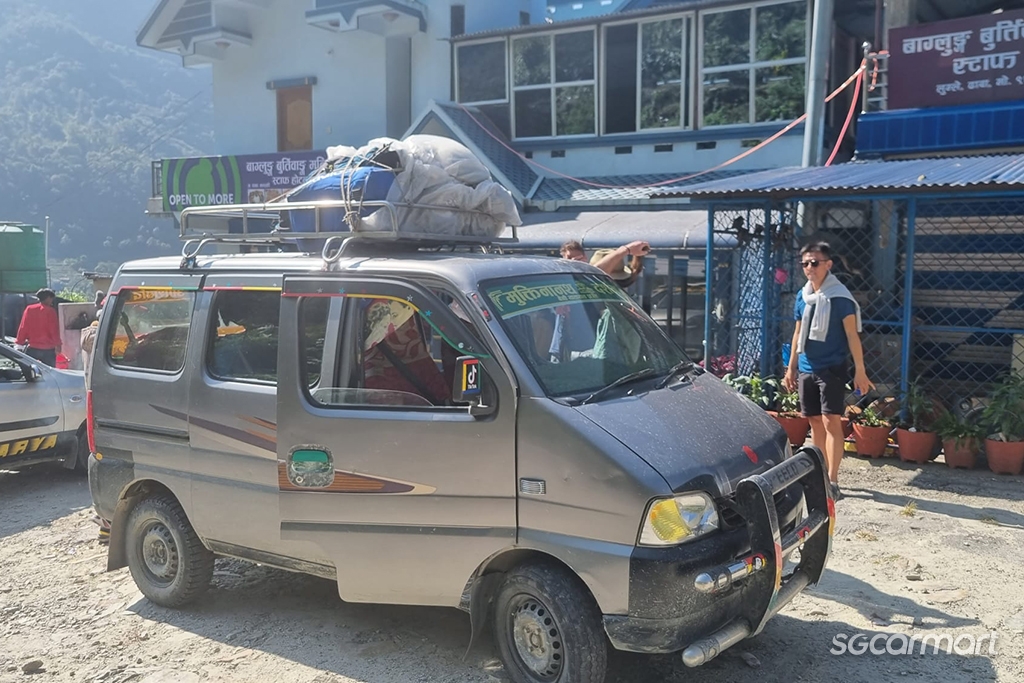Road works: Annoying perhaps, but absolutely necessary
13 Nov 2023|2,489 views
Let's talk about roads.
I was recently in Nepal. (This may or may not come up a fair bit in several of my upcoming stories).
In Nepal, the experience of being on the 'road' is certainly very different from Singapore, largely because there is a lot less 'road'. Other than within bigger cities, 'roads' in many places (especially in the mountains) basically consists of a well-tread track filled with rocks, big holes, mud and dirt. There's no tarmac to speak of.
For us city-dwellers, we will consider this off-roading. And it is - on some of the tougher mountain roads, 4x4s are needed. However, we may also somewhat romanticise off-roading as the exclusive domain of Defenders and G-Classes - specialist vehicles designed to deal with rough terrain.
And yet, in Nepal, you see tiny 20-year old Maruti Suzuki Alto taxis, big passenger buses and random 125cc scooters all scurrying along with their daily commutes up and down these mountain roads without thinking twice if the vehicles are 'fit' for the roads.
Even in Nepalese towns and cities, roads are very far from what we have become accustomed to here in Singapore
And if you think that's just in the undeveloped, mountainous regions, I will point out that even on the main highway (well, 'highway' in the sense of it being the singular paved road between towns/cities), there are sections that are just like that. Unpaved and prone to rockslides.
It is quite the experience, rocking up, down and sideways in a Maruti Eeco as we make our way from Tatopani to Pokhara. The van is surprisingly sturdy, standing up to the constant abuse of big rocks underneath, and the almost constant use of second and third gear (our driver shifted to fourth once on a four-hour journey). And across all variety of 'roads' and traffic, we make it.
The inevitability of road works
Singaporeans get annoyed and frustrated at road works. Understandably (sort of). Lane closures are disruptive to the general flow of traffic and can be an inconvenience, and no one enjoys having to make a detour from their regular route.
But we also must recognise that road works are important to maintain the overall quality of roads. Roads are not immune to wear and tear - repeated use from your car and mine will inevitably cause roads to degrade, and roads are also subject to the daily rigours of weather. It is only through scheduled road works that the quality can be maintained.
According to the Land Transport Authority, expressways are inspected weekly, major roads fortnightly and all other roads every eight weeks. When potholes are detected, repairs and conducted within 24 hours. The importance of regular inspections and prompt repairs cannot be overstated - left alone, potholes can grow in size as vehicles continue to wear away the tarmac, while additional water can exacerbate the damaged surface.
Road works are necessary not just to repair damage from daily wear and tear, but also to upgrade services such as power lines
Of course, there are occasionally major projects that cause significant disruptions. The rerouting of traffic along Loyang Ave, slated to last until 2029, immediately comes to mind. And of course, we all remember the drama surrounding the TPE-PIE viaduct construction collapse, but the now completed viaduct is a valuable addition for any East-sider.
But again, this is part and parcel of the maintenance and upgrading of our road network. Similarly, it's not uncommon to see various sections of the highway being maintained in foreign countries, which can cause traffic to get congested. Efforts can be made to reduce the disruption caused (such as having major work carried out at night when traffic is minimal), but there is no magical solution where upgrading can happen without any disruption at all.
We should note take the smoothness of our roads for granted - as with most things, quality comes with regular maintenance
A necessary frustration
But let's be very honest with ourselves: No matter how annoyed or frustrated we might get with the occasional traffic diversion or lane closure, everyone will happily accept that as a reasonable trade-off for well-maintained roads.
While Singaporeans love to complain about the smallest things, let's not take for granted what we have. When I was in Thailand, I was told that a major highway that's designed to be a throughway across central Thailand has been in construction for 10 years (and counting).
Our transportation infrastructure is not perfect, but regular maintenance ensures smooth roads and bump-free drives - the absolute opposite of my time in this Maruti Eeco rocking and bobbing my way across Nepal
Our transportation infrastructure isn't perfect, but compared to many other countries, it is still very, very good. And that comes with a necessary and inevitable cost - both our taxpayer dollars, but also the reality that we have to live with some element of occasional inconvenience to allow for maintenance works to take place.
The alternative, of course, is that you could be constantly rocking up, down and sideways, just like I did in Nepal.
Let's talk about roads.
I was recently in Nepal. (This may or may not come up a fair bit in several of my upcoming stories).
In Nepal, the experience of being on the 'road' is certainly very different from Singapore, largely because there is a lot less 'road'. Other than within bigger cities, 'roads' in many places (especially in the mountains) basically consists of a well-tread track filled with rocks, big holes, mud and dirt. There's no tarmac to speak of.
For us city-dwellers, we will consider this off-roading. And it is - on some of the tougher mountain roads, 4x4s are needed. However, we may also somewhat romanticise off-roading as the exclusive domain of Defenders and G-Classes - specialist vehicles designed to deal with rough terrain.
And yet, in Nepal, you see tiny 20-year old Maruti Suzuki Alto taxis, big passenger buses and random 125cc scooters all scurrying along with their daily commutes up and down these mountain roads without thinking twice if the vehicles are 'fit' for the roads.
Even in Nepalese towns and cities, roads are very far from what we have become accustomed to here in Singapore
And if you think that's just in the undeveloped, mountainous regions, I will point out that even on the main highway (well, 'highway' in the sense of it being the singular paved road between towns/cities), there are sections that are just like that. Unpaved and prone to rockslides.
It is quite the experience, rocking up, down and sideways in a Maruti Eeco as we make our way from Tatopani to Pokhara. The van is surprisingly sturdy, standing up to the constant abuse of big rocks underneath, and the almost constant use of second and third gear (our driver shifted to fourth once on a four-hour journey). And across all variety of 'roads' and traffic, we make it.
The inevitability of road works
Singaporeans get annoyed and frustrated at road works. Understandably (sort of). Lane closures are disruptive to the general flow of traffic and can be an inconvenience, and no one enjoys having to make a detour from their regular route.
But we also must recognise that road works are important to maintain the overall quality of roads. Roads are not immune to wear and tear - repeated use from your car and mine will inevitably cause roads to degrade, and roads are also subject to the daily rigours of weather. It is only through scheduled road works that the quality can be maintained.
According to the Land Transport Authority, expressways are inspected weekly, major roads fortnightly and all other roads every eight weeks. When potholes are detected, repairs and conducted within 24 hours. The importance of regular inspections and prompt repairs cannot be overstated - left alone, potholes can grow in size as vehicles continue to wear away the tarmac, while additional water can exacerbate the damaged surface.
Road works are necessary not just to repair damage from daily wear and tear, but also to upgrade services such as power lines
Of course, there are occasionally major projects that cause significant disruptions. The rerouting of traffic along Loyang Ave, slated to last until 2029, immediately comes to mind. And of course, we all remember the drama surrounding the TPE-PIE viaduct construction collapse, but the now completed viaduct is a valuable addition for any East-sider.
But again, this is part and parcel of the maintenance and upgrading of our road network. Similarly, it's not uncommon to see various sections of the highway being maintained in foreign countries, which can cause traffic to get congested. Efforts can be made to reduce the disruption caused (such as having major work carried out at night when traffic is minimal), but there is no magical solution where upgrading can happen without any disruption at all.
We should note take the smoothness of our roads for granted - as with most things, quality comes with regular maintenance
A necessary frustration
But let's be very honest with ourselves: No matter how annoyed or frustrated we might get with the occasional traffic diversion or lane closure, everyone will happily accept that as a reasonable trade-off for well-maintained roads.
While Singaporeans love to complain about the smallest things, let's not take for granted what we have. When I was in Thailand, I was told that a major highway that's designed to be a throughway across central Thailand has been in construction for 10 years (and counting).
Our transportation infrastructure is not perfect, but regular maintenance ensures smooth roads and bump-free drives - the absolute opposite of my time in this Maruti Eeco rocking and bobbing my way across Nepal
Our transportation infrastructure isn't perfect, but compared to many other countries, it is still very, very good. And that comes with a necessary and inevitable cost - both our taxpayer dollars, but also the reality that we have to live with some element of occasional inconvenience to allow for maintenance works to take place.
The alternative, of course, is that you could be constantly rocking up, down and sideways, just like I did in Nepal.
Thank You For Your Subscription.












